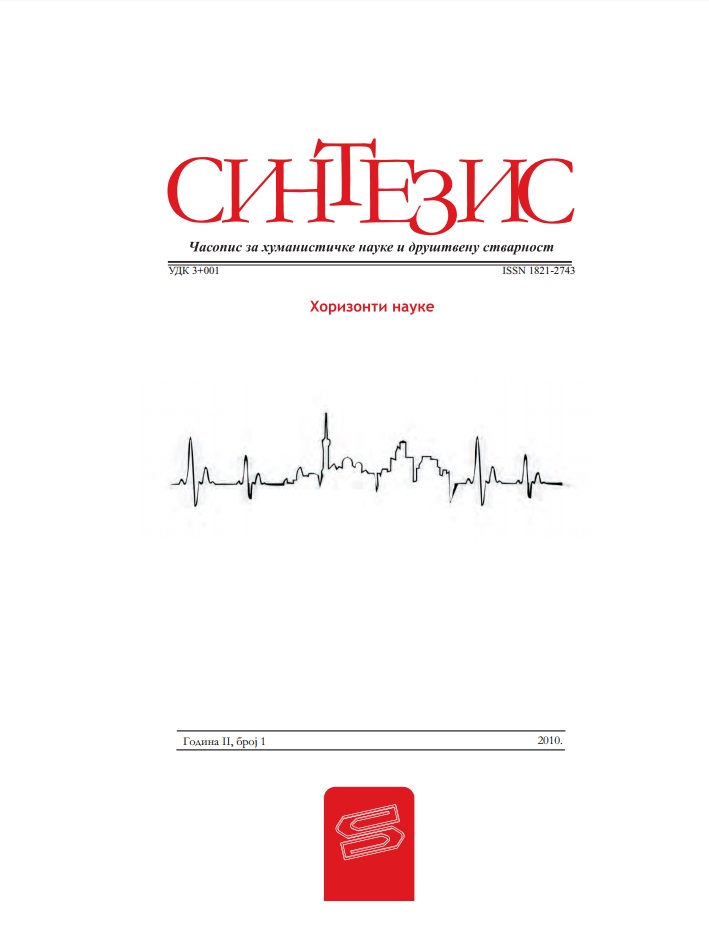Два статуса нормативних поjмова у савременоj политичкоj теориjи
The two statuses of normative concepts in contemporary political theory
Author(s): Bojan VranićSubject(s): Politics / Political Sciences
Published by: Центар за хуманистичке науке »Синтезис«
Keywords: pluralism of values; incommensurability; moda-lity; Isaiah Berlin; John Rawls
Summary/Abstract: This paper explores the status of normative concepts in contemporary liberal political theory. The author believes that within contemporary political theory it is possible to identify two key models of liberalism, between which there is a tension over the understanding of normative concepts. The two ways of understanding normative concepts are in this paper termed intrinsic and deontic normativism. Intrinsic normativism is the one derived from the values we relate to a specifi c understanding of human nature. In contrast, deontic normativism relies on the consistent, coherent and transitive theoretical or procedural value models, which enable optimal and rational individual choices. The author believes that the solutions to theoretical problems of the two normativisms can be evaluated by reducing them to the basic principles of modal logic. This would show that deontic normativism corresponds to de dicto modality and therefore can be criticised for its failure of exstensionality when substituting normative concepts with contexts and persons from political reality. Intrinsic normativism, which is connected to de re modality, can be realised each time when a value is adopted by at least one relevant political set. This leads the author to the conclusion that intrinsic normative concepts are universal, but not general according to their scope.
Journal: Синтезис - часопис за хуманистичке науке и друштвену стварност
- Issue Year: II/2010
- Issue No: 1
- Page Range: 13-27
- Page Count: 15
- Language: Serbian

